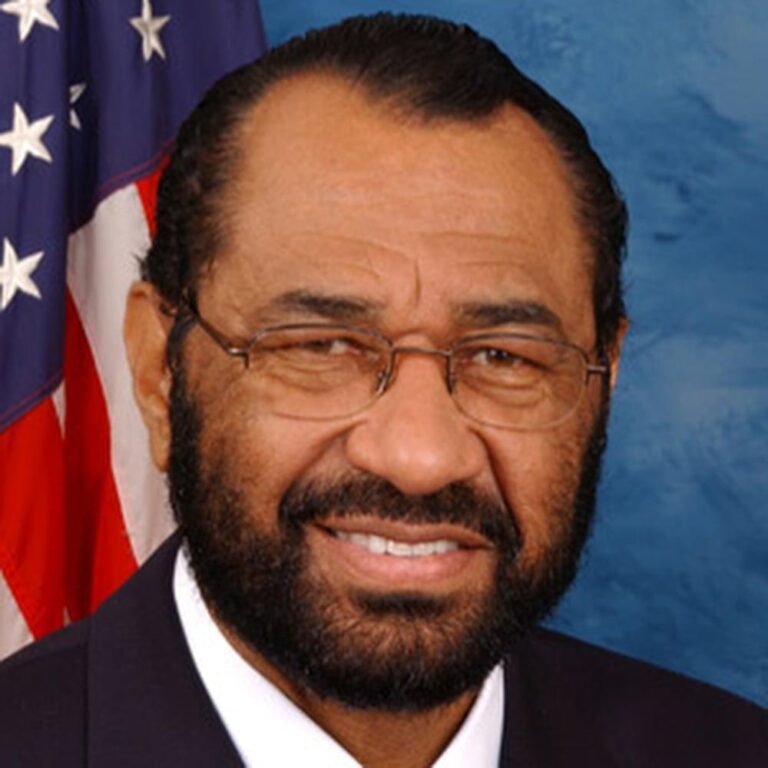Analyzing the GOP’s Uphill Battle to Unseat Congressman Al Green in Houston
Why Al Green Remains a Political Powerhouse in Houston
Congressman Al Green has solidified his position as a dominant political figure in Houston, making it increasingly difficult for Republican challengers to gain traction. His longstanding presence in the district, combined with a reputation for effectively addressing local issues, has fostered a loyal voter base that consistently supports his campaigns. Despite intensified GOP efforts involving increased campaign funding and outreach, Green’s ability to deliver tangible federal resources and maintain close community relationships continues to reinforce his electoral security.
Recent demographic data and voter registration statistics highlight the steep obstacles Republicans face in attempting to shift the district’s political alignment:
| Indicator | Democratic Affiliation | Republican Affiliation |
|---|---|---|
| Registered Voters | 70% | 27% |
| Margin in Last Election | 74% | 25% |
| Annual Community Events Hosted | 18+ | 4 |
- Extensive grassroots mobilization efforts have been pivotal in driving voter turnout for Green.
- Strong endorsements from local leaders reinforce his political alliances and credibility.
- Alignment with constituent priorities through targeted policy initiatives strengthens voter loyalty.
Core Strengths Underpinning Al Green’s Political Longevity
Green’s enduring success is largely attributed to his deep integration within Houston’s diverse communities and his adeptness at balancing progressive ideals with pragmatic governance. His consistent policy messaging resonates with a broad spectrum of voters, fostering a dependable support network that actively defends his incumbency. Additionally, Green’s strategic partnerships with influential civic organizations and community groups amplify his influence and create formidable barriers for opponents.
Key elements reinforcing Green’s political durability include:
- Persistent community engagement: Regular interaction with constituents sustains strong local support.
- Clear and consistent policy stance: A well-defined platform that appeals to core voter concerns.
- Legislative expertise: Effective navigation of congressional procedures enhances his visibility and impact.
- Robust fundraising capabilities: Steady financial contributions from both local and national donors fuel campaign efforts.
| Strategic Factor | Influence Level | Challenge for Opponents |
|---|---|---|
| Community Partnerships | Very High | Hard to Break |
| Policy Resonance | Moderate | Possible to Shift Over Time |
| Public Presence | High | Consistently Maintained |
| Fundraising Strength | High | Continuously Growing |
Reimagining GOP Campaign Strategies for Houston’s Evolving Electorate
Republican candidates face a multifaceted challenge in attempting to unseat Al Green, as traditional campaign methods have proven insufficient in this diverse and dynamic district. Houston’s demographic complexity and Green’s entrenched community relationships necessitate a more sophisticated and localized approach. GOP efforts must pivot towards building authentic connections with minority communities that have historically supported Green, avoiding broad generalizations that risk alienating key voter groups.
Recommended tactics for effective voter engagement include:
- Focused grassroots initiatives targeting underrepresented neighborhoods.
- Emphasizing economic development and public safety in campaign messaging.
- Collaborating with respected local figures to build trust and credibility.
- Leveraging digital platforms to engage younger, tech-savvy constituents.
| Campaign Element | Conventional GOP Method | Suggested Modern Approach |
|---|---|---|
| Messaging | Broad conservative themes | Community-specific, localized issues |
| Target Audience | Suburban conservative voters | Inclusive multiethnic coalitions |
| Communication Channels | Traditional TV and radio ads | Social media and neighborhood gatherings |
Expert Insights on Navigating Competitive Congressional Races
Political analysts stress that GOP contenders must adopt nuanced, community-focused strategies to challenge entrenched incumbents like Al Green. This involves prioritizing local economic issues, public safety, and education reforms that resonate with Houston’s diverse electorate. Building grassroots momentum through door-to-door canvassing and harnessing the power of digital outreach are critical to establishing genuine voter connections.
Experts also advise maintaining a balanced message that combines core conservative values with practical solutions tailored to the district’s unique needs. The table below summarizes strategic priorities and their anticipated effects:
| Focus Area | Recommended Strategy | Projected Outcome |
|---|---|---|
| Voter Engagement | Host community forums and utilize social media | Enhance trust and broaden support base |
| Policy Communication | Address local economic and safety concerns | Appeal across diverse demographics |
| Opponent Analysis | Highlight incumbent vulnerabilities tactfully | Shift public perception strategically |
| Coalition Development | Engage influential community leaders | Boost campaign credibility |
Conclusion: The Road Ahead for Republicans in Houston
In the intricate political environment of Texas, Congressman Al Green’s continued incumbency exemplifies the significant challenges Republicans encounter when confronting well-established officeholders. As the electoral landscape evolves, GOP efforts to unseat Green will require more than conventional party tactics—they must address the deep community bonds and sustained support he has nurtured over decades. The contest to replace the Houston Democrat is poised to be a prolonged and fiercely contested battle.




